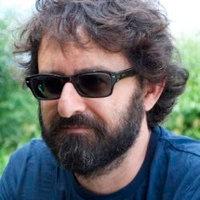
Everything Everywhere All at Once
October 4, 2023
Join Zoom Meeting
Starts at 18:00 (Moscow time)
Ash Asudeh
Professor of Linguistics
University of Rochester
Abstract
In this talk I will present a new formal framework, Lexical-Realizational Functional Grammar (LrFG), which is a lexical-realizational approach to morphology in the sense of Stump’s classification. LrFG is more than just a framework for morphology, though: the framework is a full grammatical architecture, including morphology, prosody and phonology, which together constitute the form part of the architecture, and syntax, semantics and information structure, which together constitute the structure/function/meaning part of the architecture. Indeed, LrFG was born out of the synthesis of two apparently (but not actually) incompatible approaches: Lexical-Functional Grammar and Distributed Morphology. LrFG is thus both a variety of LFG and a variety of DM. LrFG shows that the lexical-realizational DM framework can be understood in a constraint-based way and need not be coupled with a derivational theory of syntax. Instead, by coupling DM with a constraint-based theory of syntax, such as LFG, we gain formal accuracy and are able to offer new solutions to long-standing analytical problems in DM. This derives (pardon the pun) an entirely constraint-based version of DM: LrFG is constraints all the way down. LrFG also holds benefits for LFG, because LrFG is a full morphological framework and provides analysis below the level of the “word”, which is particularly useful in the analysis of polysynthetic languages, in which the “word” often provides all the information necessary for a full clause: that is, clauses can be just a word or two, so analysis at the word level can be less than fully illuminating. LrFG also promises more nuanced analysis of strongly agglutinative languages. The fully constraint-based and strongly modular LrFG framework allows us as linguists to see everything everywhere (in the architecture) all at once. In this talk, I will focus on the LrFG framework for and theory of exponence in LrFG. I will show that exponenda can profitably be modelled as distribution/meaning pairs and that these are mapped by an exponence function to exponents, which are called v(ocabulary)-structures in LrFG and are modelled as feature structures representing morphophonological and morphosyntactic information. I will provide LrFG analyses of aspects of English, Spanish, and Ojibwe, which demonstrates the framework and theory’s capacity to deal with a variety of morphologies.
For more on LrFG, see the project website: lrfg.online.